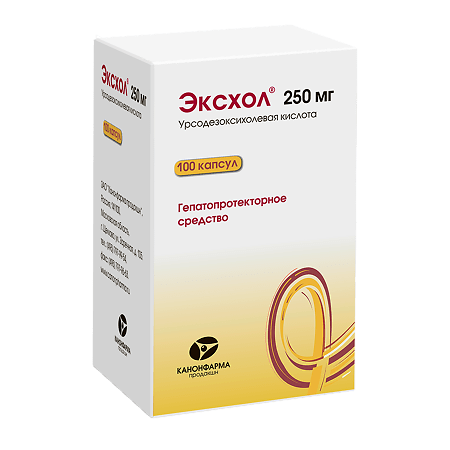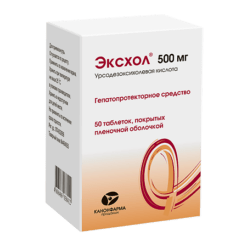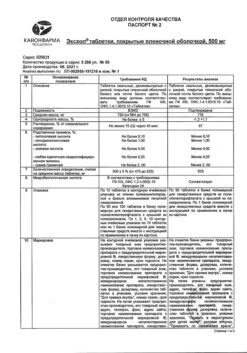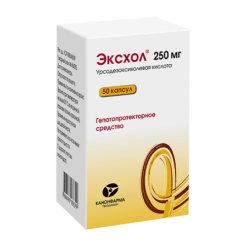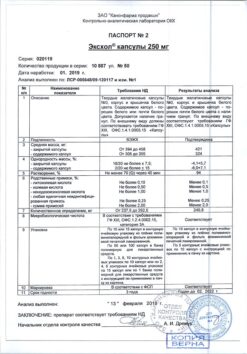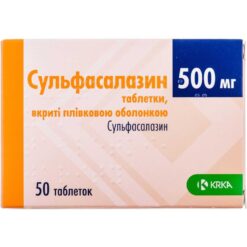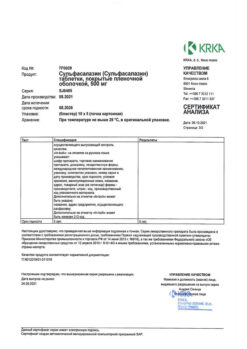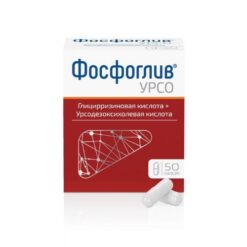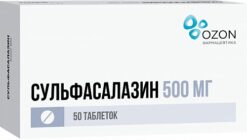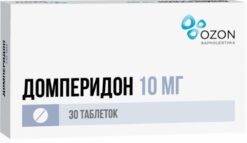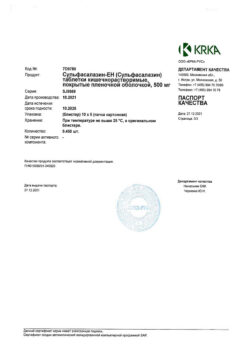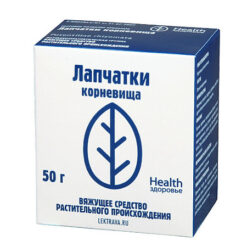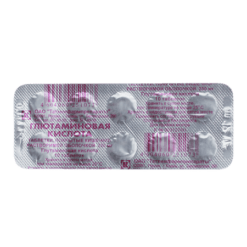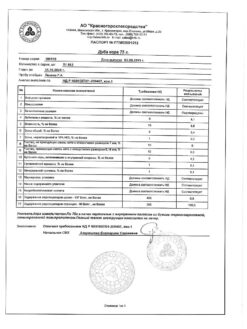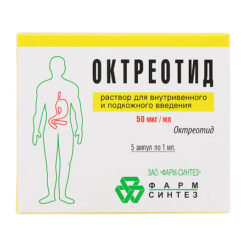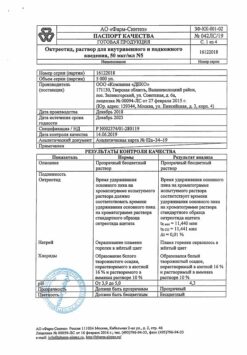No products in the cart.
Exchol, 250 mg capsules 100 pcs
€37.66 €32.64
Description
Pharmgroup:
Hepatoprotective agent.
Pharmic action:
Exchol is a hepatoprotective agent and has choleretic effect.
Reduces cholesterol synthesis in the liver, its absorption in the intestine and its concentration in the bile, increases the solubility of cholesterol in the biliary system, stimulates the formation and excretion of bile. It decreases lithogenicity of bile and increases the content of bile acids in it; it causes intensification of gastric and pancreatic secretion, increases lipase activity, and has hypoglycemic effect.
Causes partial or complete dissolution of cholesterol stones when enteral administration, reduces the saturation of bile with cholesterol, which promotes the mobilization of cholesterol from gallstones.
It has immunomodulatory effects, affects immunological reactions in the liver: decreases the expression of some antigens on the membrane of hepatocytes, affects the number of T-lymphocytes, interleukin -2 formation, decreases the number of eosinophils.
Pharmacokinetics:
Absorption from the small intestine is high (about 90%). Passes through the placental barrier. Maximum concentration (Cmax) when ingested 50 mg in 30, 60, 90 min is 3.8, 5.5, 3.7 mmol/l, respectively. Time of reaching maximum concentration (TCmax) is 1-3 hours. Binding to plasma proteins is high.
It is metabolized in the liver (clearance during “primary passage” through the liver) into taurine and glycine conjugates. The resulting conjugates are secreted into the bile. It is 50-70% excreted through the intestine. A small amount of unabsorbed ursodeoxycholic acid enters the large intestine, where it undergoes cleavage by bacteria (7-dehydroxylation); the resulting lithocholic acid is partially absorbed from the colon, but is sulfated in the liver and rapidly excreted as sulfolithocholylglycine or sulfolithocholyltaurine conjugate.
Indications
Indications
Primary biliary cirrhosis in the absence of signs of decompensation (symptomatic therapy), dissolution of small and medium-sized cholesterol stones with a functioning gallbladder, biliary reflux – gastritis.
Pharmacological effect
Pharmacological effect
Pharmaceutical group:
hepatoprotective agent.
Pharmaceutical action:
Exchol is a hepatoprotective agent and has a choleretic effect.
Reduces cholesterol synthesis in the liver, its absorption in the intestines and concentration in bile, increases the solubility of cholesterol in the biliary system, stimulates the formation and secretion of bile. Reduces the lithogenicity of bile, increases the content of bile acids; causes increased gastric and pancreatic secretion, enhances lipase activity, and has a hypoglycemic effect.
Causes partial or complete dissolution of cholesterol stones when administered enterally, reduces the saturation of bile with cholesterol, which promotes the mobilization of cholesterol from gallstones.
It has an immunomodulatory effect, affects immunological reactions in the liver: it reduces the expression of certain antigens on the hepatocyte membrane, affects the number of T-lymphocytes, the formation of interleukin-2, and reduces the number of eosinophils.
Pharmacokinetics:
Absorption from the small intestine is high (about 90%). Penetrates through the placental barrier. The maximum concentration (Cmax) when taken orally 50 mg after 30, 60, 90 minutes is 3.8, 5.5, 3.7 mmol/l, respectively. The time to reach maximum concentration (TCmax) is 1-3 hours. The connection with plasma proteins is high.
Metabolized in the liver (first pass clearance through the liver) into taurine and glycine conjugates. The resulting conjugates are secreted into bile. It is excreted 50-70% through the intestines. A small amount of unabsorbed ursodeoxycholic acid enters the large intestine, where it is broken down by bacteria (7-dehydroxylation); the resulting lithocholic acid is partially absorbed from the colon, but is sulfated in the liver and quickly excreted in the form of sulfolithocholylglycine or sulfolitocholyltaurine conjugate.
Special instructions
Special instructions
For successful dissolution, it is necessary that the stones are purely cholesterol, no more than 15-20 mm in size, the gallbladder is no more than half filled with stones, and the bile ducts fully retain their function.
When prescribed for the purpose of dissolving gallstones, it is necessary to control the activity of “liver” transaminases and alkaline phosphatase (ALP), gamma-glutamine transferase (GGT), and bilirubin concentration. Cholecystography should be performed every 4 weeks in the first 3 months of treatment, then every 3 months. Monitoring the effectiveness of treatment is carried out every 6 months during ultrasound during the first year of therapy.
If elevated levels persist, the drug should be discontinued. After complete dissolution of the stones, it is recommended to continue use for at least 3 months in order to promote the dissolution of stone remains that are too small to be detected.
If partial dissolution of the stones has not occurred within 6-12 months after the start of therapy, it is unlikely that the treatment will be effective.
The discovery of a non-visualized gallbladder during treatment is evidence that complete dissolution of the stones has not occurred and treatment should be discontinued.
Active ingredient
Active ingredient
Ursodeoxycholic acid
Composition
Composition
1 capsule contains:
active substance:
ursodeoxycholic acid 250 mg;
excipients:
colloidal silicon dioxide (Aerosil A-200 or A-300),
calcium hydrogen phosphate dihydrate,
magnesium stearate,
povidone (plasdon K-90 or collidon 90 F),
lactose monohydrate (milk sugar);
composition of the hard gelatin capsule:
case – titanium dioxide,
gelatin;
cap – titanium dioxide,
gelatin,
indigo carmine.
Contraindications
Contraindications
Hypersensitivity,
X-ray positive (high Ca2+ content) gallstones,
non-functioning gallbladder,
bile-gastrointestinal fistula,
chronic hepatitis,
inflammatory diseases of the small and large intestine,
acute cholangitis,
liver and/or kidney failure,
pancreatitis,
obstruction of the biliary tract,
acute infectious diseases of the gallbladder and bile ducts,
empyema of the gallbladder,
pregnancy,
lactation period,
childhood.
Side Effects
Side Effects
Back pain
diarrhea (may be dose dependent),
abdominal pain,
calcification of gallstones,
increased activity of “liver” transaminases,
alopecia,
constipation,
dizziness,
nausea,
exacerbation of previously existing psoriasis,
vomit,
allergic reactions.
Interaction
Interaction
Antacids containing Al3+ and ion exchange resins (colestyramine) reduce absorption.
Lipid-lowering drugs (especially clofibrate), estrogens, neomycin, or progestins increase the saturation of bile with cholesterol and may reduce the ability to dissolve cholesterol gallstones.
Overdose
Overdose
No cases of overdose have been identified.
In case of overdose, symptomatic treatment is carried out.
Storage conditions
Storage conditions
In a dry place, protected from light, at a temperature not exceeding 25 °C
Shelf life
Shelf life
3 years
Manufacturer
Manufacturer
Kanonpharma production CJSC, Russia
Additional information
| Shelf life | 3 years |
|---|---|
| Conditions of storage | In a dry, light-protected place at a temperature not exceeding 25 °C |
| Manufacturer | Kanonfarma Production ZAO, Russia |
| Medication form | capsules |
| Brand | Kanonfarma Production ZAO |
Other forms…
Related products
Buy Exchol, 250 mg capsules 100 pcs with delivery to USA, UK, Europe and over 120 other countries.

